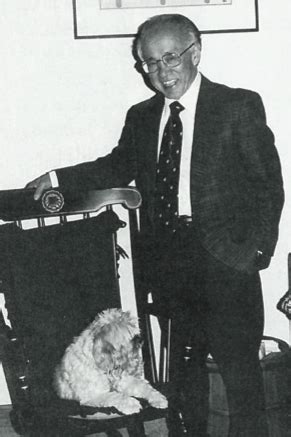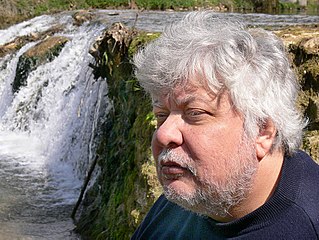A Quote by Radhanath Swami
What I found particularly fascinating and satisfying about the Hindu tradition was its spirit of inclusiveness. In Sanatan Dharma, or what is commonly called Hinduism, I discovered the basic truths of all religions in a way that the oneness of God and religion is comprehensively understood.
Related Quotes
Dharma has several connotations in South Asian religions, but in Buddhism it has two basic, interrelated meanings: dharma as 'teaching' as found in the expression Buddha Dharma, and dharma as 'reality-as-is' (abhigama-dharma). The teaching is a verbal expression of reality-as-is that consists of two aspects-the subject that realizes and the object that is realized. Together they constitute 'reality-as-is;' if either aspect is lacking, it is not reality-as-is. This sense of dharma or reality-as-is is also called suchness (tathata) or thatness (tattva) in Buddhism.
I came to the conclusion long ago that all religions were true and that also that all had some error in them, and while I hold by my own religion, I should hold other religions as dear as Hinduism. So we can only pray, if we were Hindus, not that a Christian should become a Hindu; but our innermost prayer should be that a Hindu should become a better Hindu, a Muslim a better Muslim, and a Christian a better Christian.
If we live in our oneness-heart, we will feel the essence of all religions, which is love of God. But if we live in the mind, we will only try to separate one religion from another and see how their ideologies differ. It is the heart that can have a true intuitive understanding of the height and breadth of all religions. It is the heart that sees and feels the inner harmony and oneness of all religions.
All religions are not the same. All religions do not point to God. All religions do not say that all religions are the same. At the heart of every religion is an uncompromising commitment to a particular way of defining who God is or is not and accordingly, of defining life's purpose.
Anyone who claims that all religions are the same betrays not only an ignorance of all religions but also a caricatured view of even the best-known ones. Every religion at its core is exclusive.
[Giving] is the essence of the great religions of the world - whether you are discussing the Muslim, Hindu, Jewish or Christian religion. It is an essential fundamental principle of all religions, whatever stage of development a society has reached, to sympathize with others and to promote that spirit of equality.
I know that Arnold Toynby, the great historian, said he had always hoped the religions of the world would evolve until they began to bring the very best of each tradition into one tradition. He hoped that Christianity would be the one religion that finally incorporated the values of Hinduism and Buddhism, and enriched itself with them.
Hinduism... gave itself no name, because it set itself no sectarian limits; it claimed no universal adhesion, asserted no sole infallible dogma, set up no single narrow path or gate of salvation; it was less a creed or cult than a continuously enlarging tradition of the Godward endeavour of the human spirit. An immense many-sided many-staged provision for a spiritual self-building and self-finding, it had some right to speak of itself by the only name it knew, the eternal religion, Sanatana Dharma.
One reason which I find particularly fascinating about Israel is this. There is no such thing as a Jewish civilization. There is a Jewish culture, a Jewish religion, but there is no such thing as a Jewish civilization. The Jews were a component basically of two civilizations. In the Western world, we talk about the Judeo-Christian tradition and you talk about the Judeo-Islamic tradition because there were large and important Jewish communities living in the lands of Islam.
God is not a Christian, God is not a Jew, or a Muslim, or a Hindu, or a Buddhist. All of those are human systems which human beings have created to try to help us walk into the mystery of God. I honor my tradition, I walk through my tradition, but I don't think my tradition defines God, I think it only points me to God.
The Kama Sutra is neither exclusively a sex manual nor, as also commonly used art, a sacred or religious work. It is certainly not a tantric text. In opening with a discussion of the three aims of ancient Hindu life – dharma, artha and kama – Vatsyayana's purpose is to set kama, or enjoyment of the senses, in context. Thus dharma or virtuous living is the highest aim, artha, the amassing of wealth is next, and kama is the least of three.
I embraced Hinduism because it was the only religion in the world that is compatible with National Socialism. And the dream of my life is to integrate Hitlerism into the old Aryan Tradition, to show that it is really a resurgence of the original Tradition. It's not Indian, not European, but Indo-European. It comes from back to those days when the Aryans were one people near the North Pole. The Hyperborean Tradition.


































